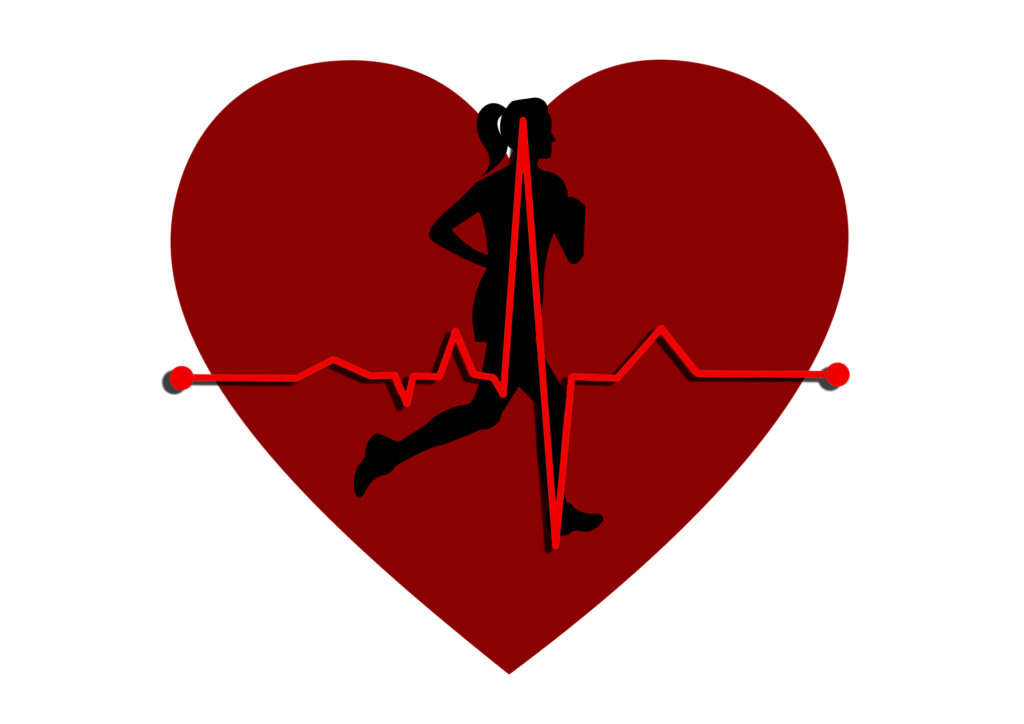As we age, our bodies change. Our cardiovascular system is no exception. One of the changes that occurs is a decrease in our maximum heart rate. That is, the highest number of beats per minute that our heart can achieve during physical activity.
What is Maximum Heart Rate?
According to The American Heart Association, maximum heart rate–often denoted as HRMax–can be estimated by subtracting a person’s age from 220. For example, a 20-year-old would have a maximum heart rate of approximately 200 beats per minute, while a 70-year-old would have a maximum heart rate of approximately 150 beats per minute.
It is, however, important to note that maximum heart rate can vary significantly between individuals and this method may not accurately reflect an individual’s actual maximum heart rate. In general, some individuals may have a naturally higher maximum heart rate than others due to genetics, physical fitness levels, and lifestyle factors. On the other hand, some individuals may have a lower maximum heart rate due to underlying health conditions or the use of certain medications.

Additionally, factors such as exercise habits and physical fitness levels can affect an individual’s maximum heart rate. Regular exercise can improve heart function and increase maximum heart rate, while sedentary behaviour can decrease maximum heart rate.
Therefore, while the estimation of maximum heart rate by subtracting age from 220 can be a helpful starting point, it is important to recognize that there is significant variability between individuals. This is not an accurate method for determining an individual’s actual maximum heart rate.
I recommend all runners who want to use heart rate to guide their training to test their HRMax. That means designating a workout day to determining your maximium heart rate. The test protocol involves progressively increasing the intensity of your running until the you reach your maximum heart rate.
Why does Maximum Heart Rate Matter?
Maximum heart rate is an important measure for runners as it can be used to guide exercise intensity during training and racing. By knowing their maximum heart rate, runners can determine their target heart rate zones for different types of workouts. It is especially helpful in making sure your recovery runs are easy enough, and your moderate runs aren’t too fast. This can help you train more effectively and efficiently, and potentially avoid the pitfalls of overtraining and overload injuries.
>> Related Reading: An Introduction to Running Training Intensity
Maximising performance in races also depends on optimising the use of energy resources. Running at an intensity level that is too high can lead to early fatigue and decreased performance. Therefore, staying within an appropriate heart rate zone during a race can help runners maintain a steady pace and avoid early fatigue.
Having a clear idea of your maximum heart rate, and the corresponding intensity zones is an important tool for runners. It will help you to improve your training, track your progress, and optimise your performance in races.
The Implications of a Decreasing Maximum Heart Rate
The decline in maximum heart rate is a natural part of the ageing process. This is thought to be due to changes in the electrical properties of the heart, and a decrease in the number of pacemaker cells in the heart. In addition, as we age, our arteries become stiffer and less able to dilate. The result is that it becomes harder for the heart to pump blood and achieve a high heart rate.
The upshot? While a decrease in maximum heart rate is inevitable as you age, regular exercise can help to maintain cardiovascular health and improve heart function. In fact, regular exercise has been shown to increase the amount of blood pumped by the heart with each beat, and to improve the heart’s ability to dilate blood vessels.
Remember how maximum heart rate is individual, and not the same for everyone? Well, the same is true for the rate of decline of maximum heart rate with age between individuals. Additionally, other factors influence the decrease in max heart rate as we age. This includes elements such as genetics, physical fitness, and certain medications.
Are you a runner who relies on heart rate based intensity management? Then it is important to take the relationship between age and maximum heart rate to heart. …
Let me know by sending me an email at lc@run161.com.Like this?
